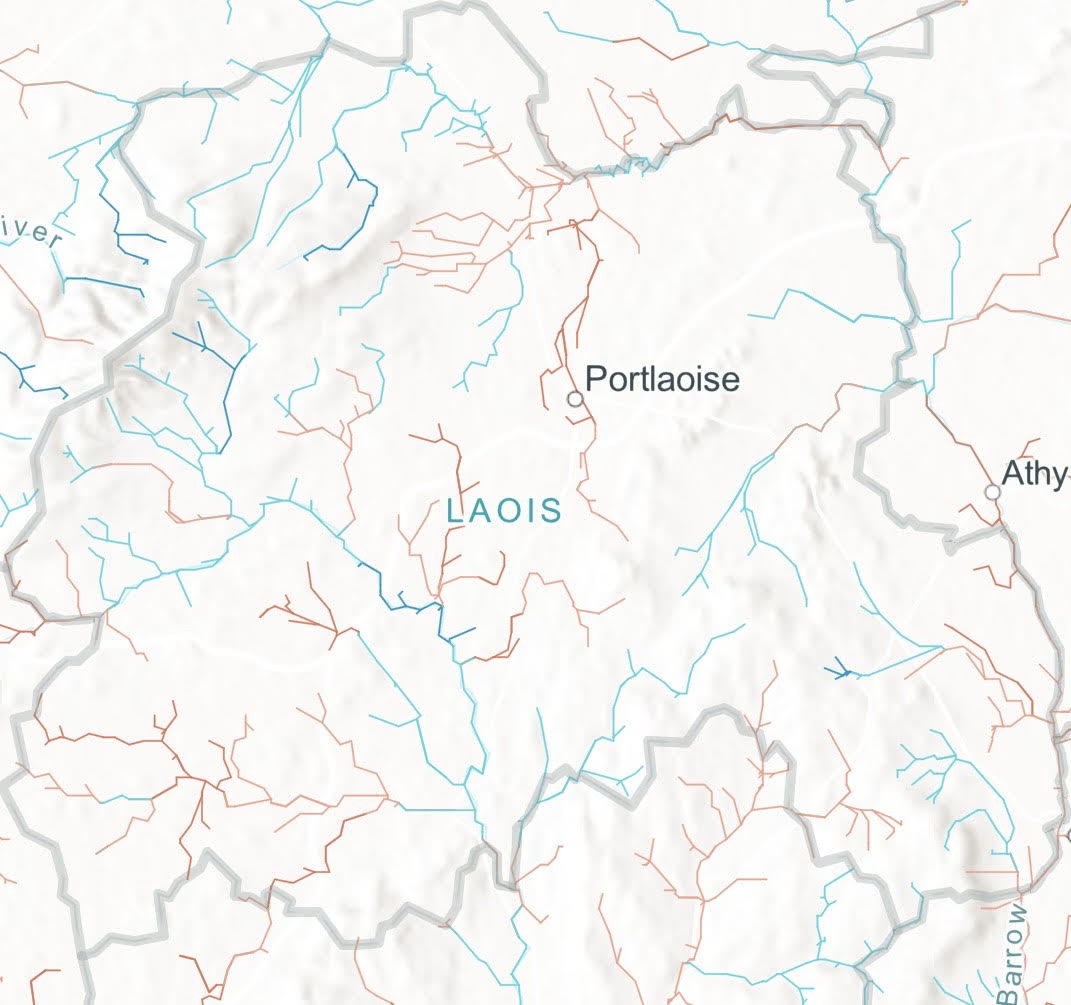
The river Barrow in Portarlington pictured in summer.
A new report by the Rivers Trust on the ecological health of rivers across the country has revealed it is very much a mixed bag when it comes to standards in Laois.
The report provides insights into the range of pressing issues affecting water sources and proposes urgent actions to address these challenges.
In Laois the River Barrow varied greatly from high ecological health, to good, moderate and poor in places.
Ecological health looks at what’s living in the river, and how modified it is. The presence, absence and abundance of species is a good indication of the general health of a river.
The Triogue river which runs through Portlaoise was found to have poor ecological health. Other rivers and streams found to be in poor quality was the the Ballyroan river near Abbeyleix, the Donaghmore stream, Rathdowney, Kylegrove stream, Killeen Stream (Douglas), the Leer river stretch, Clonawollan stream, the Cappanacloghy river at Trumra, the Goul and the Gully was both poor and good in parts. CONTINUE READING AFTER THE MAP

The Owenass river was found to have moderate and good ecological health in parts as well as the Erkina river in Rathdowney.
The Tonet, the Clogh at The Swan, Holly Park stream at Doonane and the Errill river were all found to have moderate ecological health. The Mountrath river was moderate while the Needleford stream was in good quality.
It was good news in the Slieve Bloom Mountains where the Delour river was in high and good ecological health.
The River Nore was also found to have high ecological health and good health in parts.
The Fushoge river in the south east of the county was in good health as was the Stradbally river. The Dunrally stream and the Blackwater were both classified as good.
Nationally the report found nearly half of all rivers in Ireland are below good ecological health standards, highlighting the significant challenges facing the freshwater ecosystems. Agriculture emerges as the leading contributor, impacting 63% of stretches of river (1,023 in total). Activities such as altering river hydromorphology, forestry, and urban runoff further exacerbate the situation.
The Rivers Trust Ireland Development Manager, Dr Constanze O’Toole, said: “Our new State of Our Rivers report underscores the urgent need for comprehensive action to address these pressures and safeguard the future of Ireland's freshwater environment.
“The pressures on Ireland’s freshwater resources are so diverse and widespread that we need a collective effort to address them effectively. Everyone has a part to play; whether it is maintaining septic tanks, protecting against invasive species, or not putting items that cause blockage in sewers, protecting freshwater sources is everyone’s responsibility.
“The government must also provide adequate investment in water infrastructure, conservation and alleviation projects and community empowerment, and creating joined-up legislation that puts water quality at its centre.
“EU governance also plays a crucial role in overseeing Ireland's commitments to improving the freshwater environment. As a member state of the European Union, Ireland is bound by various directives and regulations to protect and enhance the quality of its water bodies.”
In light of these findings, Mark Horton, Director of The Rivers Trust All-Ireland, emphasises the urgent need for action, stating: “This report is an alarm bell to every local community, citizen, politician, landowner, and our business community that we need to take collective action now if we want to improve and protect this vital freshwater resource that we all depend on and avert a deepening environmental and ecological crisis.
“I urge everyone to engage with our new report, contact their political representatives, and join us to take practical action. To make that process more accessible, we have included in the report a simple tool for generating draft emails to local political representatives, encouraging them to prioritise river protection and restoration efforts.”
Mark concluded: “Despite the dire current state of our rivers, I remain optimistic because, as this report shows, almost all the pressures negatively impacting our rivers, loughs and groundwater are caused by human activities, and it is, therefore, within our gift to reverse some of these impacts.
Subscribe or register today to discover more from DonegalLive.ie
Buy the e-paper of the Donegal Democrat, Donegal People's Press, Donegal Post and Inish Times here for instant access to Donegal's premier news titles.
Keep up with the latest news from Donegal with our daily newsletter featuring the most important stories of the day delivered to your inbox every evening at 5pm.